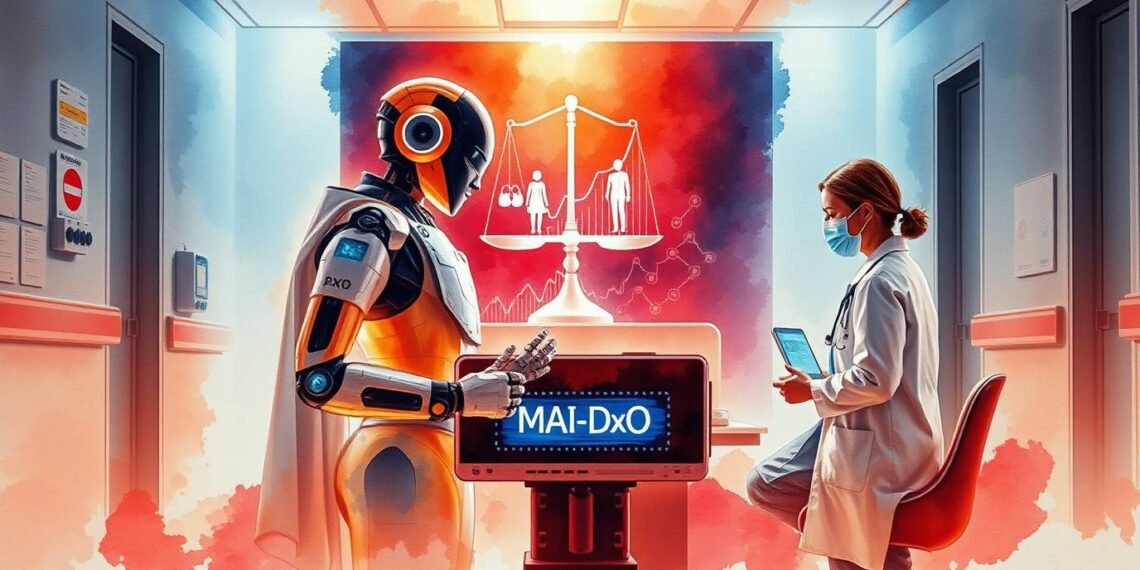New research, using AI in healthcare shows promising results, particularly in accelerating drug discovery, improving medical advice from Google, and enabling wearables to predict health outcomes. Recently, Microsoft introduced a new AI healthcare solution, the Microsoft AI Diagnostic Orchestrator (MAI-DxO), which has diagnosed 85% of cases in the New England Journal of Medicine (NEJM), significantly outpacing human doctors, especially in complicated situations that typically need several specialists. With healthcare systems facing difficulties, many are seeking assistance from technology, as Microsoft shared that its AI consumer apps, including Bing and Copilot, receive over 50 million health-related queries each day.
The US Medical Licensing Examination (USMLE) is designed to evaluate both human doctors and AI capabilities, though current AI systems tend to perform well through memorization rather than genuine comprehension. To address the shortcomings in AI assessments, Microsoft has created the Sequential Diagnosis Benchmark (SD Bench), which more accurately reflects how real clinicians diagnose patients. MAI-DxO was alongside various advanced systems during evaluation, acting as a virtual group of physicians utilizing different diagnostic strategies, and it demonstrated impressive reasoning by modifying queries based on new information, simulating the diagnostic methods that human doctors are accustomed to.
Microsoft’s blog noted that MAI-DxO increased the diagnostic accuracy of all examined models, particularly outperforming seasoned physicians, whose average accuracy was only 20%. Moreover, this AI system is versatile and capable of working within specific budget limits, a necessary feature given the high costs of U.S. healthcare, ensuring it does not order unnecessary tests. While AI is unlikely to completely replace human doctors anytime soon, Microsoft’s insights suggest that AI might enhance traditional clinical reasoning and improve patient self-assessments while aiding doctors with complicated cases, potentially leading to substantial savings in a cost-heavy industry. Although MAI-DxO’s validation is limited to exceptional instances, its reliability for everyday tasks is still unclear; however, Microsoft asserts it is not designed to replace human practitioners. MAI-DxO is part of a more extensive health initiative by Microsoft AI, which includes tools such as RAD-DINO for radiology and Microsoft Dragon Copilot for medical experts.
The ainewsarticles.com article you just read is a brief synopsis; the original article can be found here: Read the Full Article…


